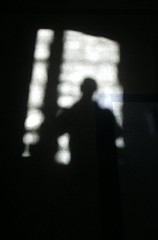nomizein tous theous
These absences make it difficult to speak of Greek "religion," at least in the positive sense in which the term is used in the context of monotheistic tradition. The Greek language does not even possess a term whose semantic field coincides with that of the word "religion." The nearest term, eusebia, is defined by the priest Euthyphro in the Platonic dialogue named after him as "the care (therapeia) that men have of the gods" (Plato Euthyphro 12e). In this sense, the term covers the punctual observance of services in order to express respect toward the gods, during which proper signs of homage and deference are displayed. These services usually took the form of votice and sacrificial offerings. The Greek equivalent of the word "faith" is equally weak. In everyday language, the expression "to believe in the gods" (nomizein tous theous) does not indicate a rational conviction of their existence (as it will come to do in a more developed philosophical language), but "to respect" or honor the gods by performing certain acts. Nomizein thus comes to mean the same as therapeuein: to devote the appropriate ritual care to the gods.
Mario Vegetti, "The Greeks and their gods", in: The Greeks, (ed.) JP Vernant, University of Chicago Pressp.256
Crest
If there's been a way to build it there'll be a way to destroy it, things are not all that out of control | If there's been a way to build it there'll be a way to destroy it, things are not all that out of control | If there's been a way to build it there'll be a way to destroy it, things are not all that out of control | If there's been a way to build it there'll be a way to destroy it, things are not all that out of control | If there's been a way to build it there'll be a way to destroy it, things are not all that out of control | If there's been a way to build it there'll be a way to destroy it, things are not all that out of control | If there's been a way to build it there'll be a way to destroy it, things are not all that out of control | If there's been a way to build it there'll be a way to destroy it, things are not all that out of control | If there's been a way to build it there'll be a way to destroy it, things are not all that out of control | If there's been a way to build it there'll be a way to destroy it, things are not all that out of control | If there's been a way to build it there'll be a way to destroy it, things are not all that out of control | If there's been a way to build it there'll be a way to destroy it, things are not all that out
link (11mb)
eh? directions, please
The two world wars have made Germany one of he most pacifist countries on earth, a sentiment that in some quarters extends to hostility toward anything military: there are neighbourhoods in Berlin where a soldier is well advised not to appear in uniform.
G. Packer, Embers, The New Yorker, February 1, 2010, p.37
fear of flying


April 14
But I watched them walk
Through the bottom land,
And I wished that I played
In a rock & roll band.
link(9.55mb)
nomizein tous theous
Dust Bowl ballads at Bender Bar | a mandolin, a button accordeon, two voices, Jen and Flora | S says there are two types of humour: one makes one laugh at everything, the other at nothing | A's pizza-scented scarf (fire engine red) | El Monstro del Mar premiere at the Astor | concerning the libidinal economy of Psychobilly | Das Buch der Klänge | "Macht scharf wie Schifferscheisse". noch nie gehört | the Kraken awakes | Thinking of F & B & M & B | Find & watch Naomi Kawase's Sharasojyu | Find & watch Dominik Graf's Die Freunde der Freunde | Impressionism as the principle of the aesthetic novice | the secret map to making friends | Chapel St & Kastanienallee | Waiting for Orly | boys pee, girls wee. there is no other way | Gesine's sadness, Johnson's proselytizing | a postcard from Shanghai | ohayō kyōdai
Graf as Richter


anniversaries
Dormit hev'ck mi avfunn': sage Willi trübselig, doch mit einer Art Vorfreude.
Uwe Johnson, Jahrestage, Suhrkamp, 2000, p.1402





